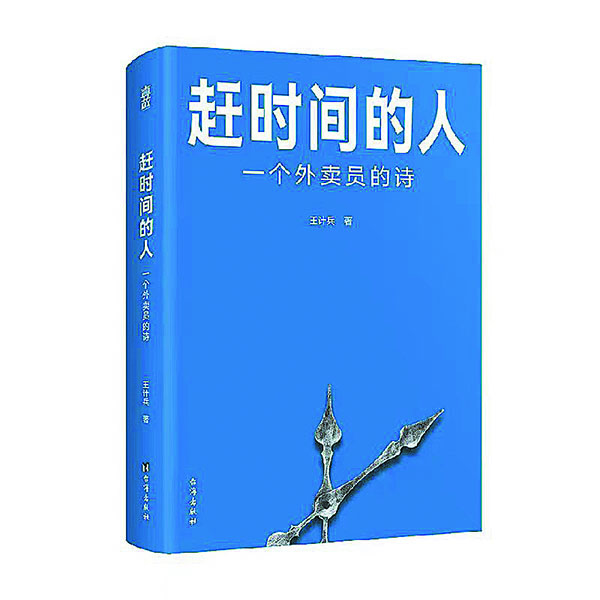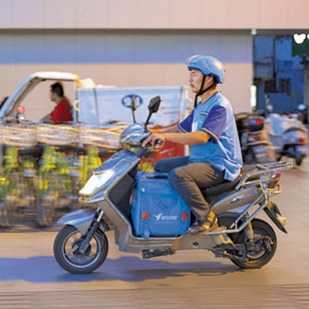Delivering a feast of poetry


Food takeaway rider who finds respite from his daily work stress in writing poetry publishes his second collection in as many years, Chen Nan reports.
In 2019, Wang Jibing, a food delivery rider living and working in Kunshan, East China's Jiangsu province, had an unpleasant experience due to the wrong address left by a customer. Wang searched three buildings and climbed 18 floors before he finally managed to deliver the food to the customer, who rudely scolded Wang for arriving late.
Wang was sad and frustrated. As a husband and father of three children, who shoulders the majority of the financial responsibility in his family, he had to swallow the insult.
"If I argued with him, he would give me negative feedback and the company would have imposed a fine on me. I had no choice but to apologize repeatedly," recalls Wang, 54, who makes about 6,000 yuan ($823) a month by delivering food.
On his way home that day, Wang wrote a poem, Man in a Hurry, expressing his feelings.
"Wind is born from air in a hurry. A knife is forged from the wind in hurry … Man in a hurry has no four seasons. He only has one stop after another. His world is about the name of a place," he wrote.

Since then, Wang has been writing poems inspired by his daily life, including a poem New Temple, which was conceived after he delivered food to construction workers repairing an old temple, and Forgive, based on his observation of a young couple fighting.
Wang's poems, simple yet real, are seen as a tool to process his emotions, especially the personal experiences he has during his work. His heart is healed by writing the poems, and he has shared them with his friends. In 2022, one of his friends posted Man in a Hurry online. It quickly went viral and was viewed for over 20 million times.
The same year, Wang published a collection of more than 180 poems, under the same title. The book's cover is blue, the same color as the uniform that Wang wears. His poems and stories deeply touched many people, who share similar struggles and negative emotion in their lives — so much so that the book's first 5,000 copies sold out.
So far, Wang has written about 4,000 poems.





































